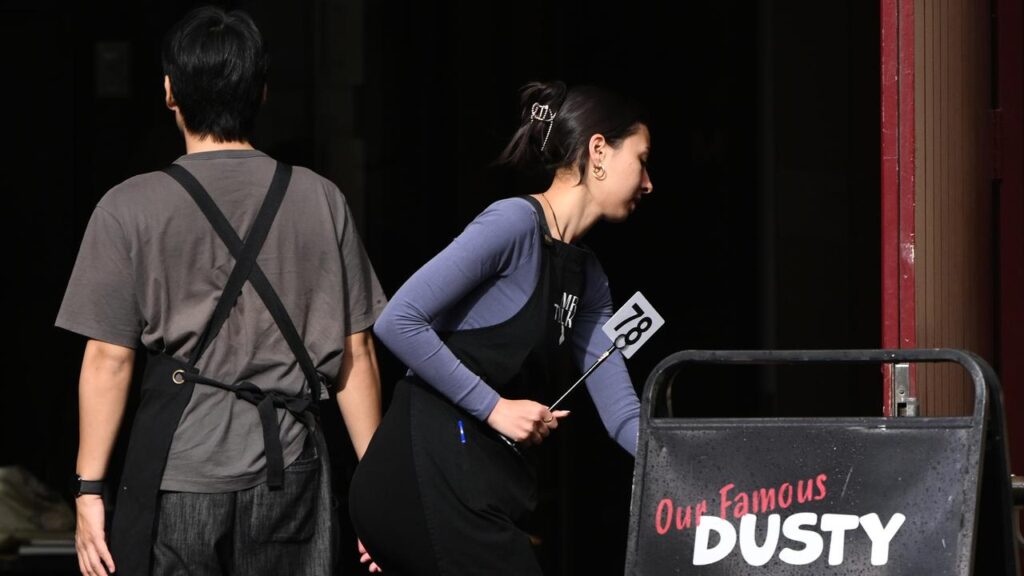Workers optimistic but employers wary over wages bill
Sebastian Tan and Tess Ikonomou |

About one in seven Australian workers will have their penalty rates increased and their employers will not be able to reduce them, under changes proposed by the Albanese government.
One of those workers is service assistant Ruth Sumner, who for 25 years had to struggle to provide for her kids.
Although her children have moved out, she still has to look for deals to pay for her basic needs, sacrificing her quality of life.
“It’s sad because everything’s going up. It’s your power and everything,” Ms Sumner told AAP.
“I look at an apple that I really like but if there’s one two dollars cheaper, I’m going to buy the cheaper one.”

She stands to benefit from a bill Labor has introduced to the lower house that seeks to enshrine higher rates of pay for award workers when they work late nights, early hours, weekends and public holidays.
If it is passed, award workers will earn a base weekend penalty rate of about $40 an hour.
While rates can vary depending on an employee’s specific award or agreement applicable to that industry, common pay rates for workers on a Sunday are double time (200 per cent) or time and a half (150 per cent).
A calculation of rates on the Fair Work Commission’s website shows a common penalty for a casual hospitality Saturday shift to be $40.85 per hour, while a Sunday shift could bring in $47.65 per hour.
Ms Rishworth said award workers deserved to have their wages protected.

“Wages of low-paid workers should not go backwards because that’s not fair and not what Australians expect of our workplace relation system,” Ms Rishworth said as she introduced the bill.
The Australian Chamber of Commerce and Industry said the bill was anything but simple and fair, calling it a “backwards step”.
Acting chief executive David Alexander said it made negotiating wage changes harder for employers, especially small businesses who already struggled to work through the “complex” fair work act.
“Tying Australian businesses up in knots around workplace systems has the effect of strangling growth and that means less jobs and lower wages,” Mr Alexander said.
“This bill is at odds with the government’s plans to improve productivity, and instead injects more rigidity and complexity into the fair work laws.”

Opposition employment spokesman Tim Wilson said the coalition supported penalty rates, but agreed the government had overlooked small businesses who had not been adequately consulted.
He floated holding a Senate inquiry so employers’ could voice their concerns.
“There’s concerns that this may undermine the role of the Fair Work Commission,” Mr Wilson said.
“If anything, small business needs to be brought into the conversation because they need hope, and when you need hope, the best way to give it is to be part of the conversation about the way forward.”
Mr Wilson said the absence of a regulatory impact statement, which lays out the potential impacts of the proposed changes, meant consultation was even more important.

The Australian Council of Trade Unions said young people, women and casual workers would suffer most if higher penalty rates were not enshrined.
“Unfortunately, for decades, employers have pushed and pushed to erode or abolish them,” secretary Sally McManus said.
The Shop, Distributive and Allied Employees Association said wage theft remained a problem in the retail and fast food industries, and the protections would force employers to show they respect their workers.
The bill will be passed to MPs before it is debated in parliament at a later date.
AAP